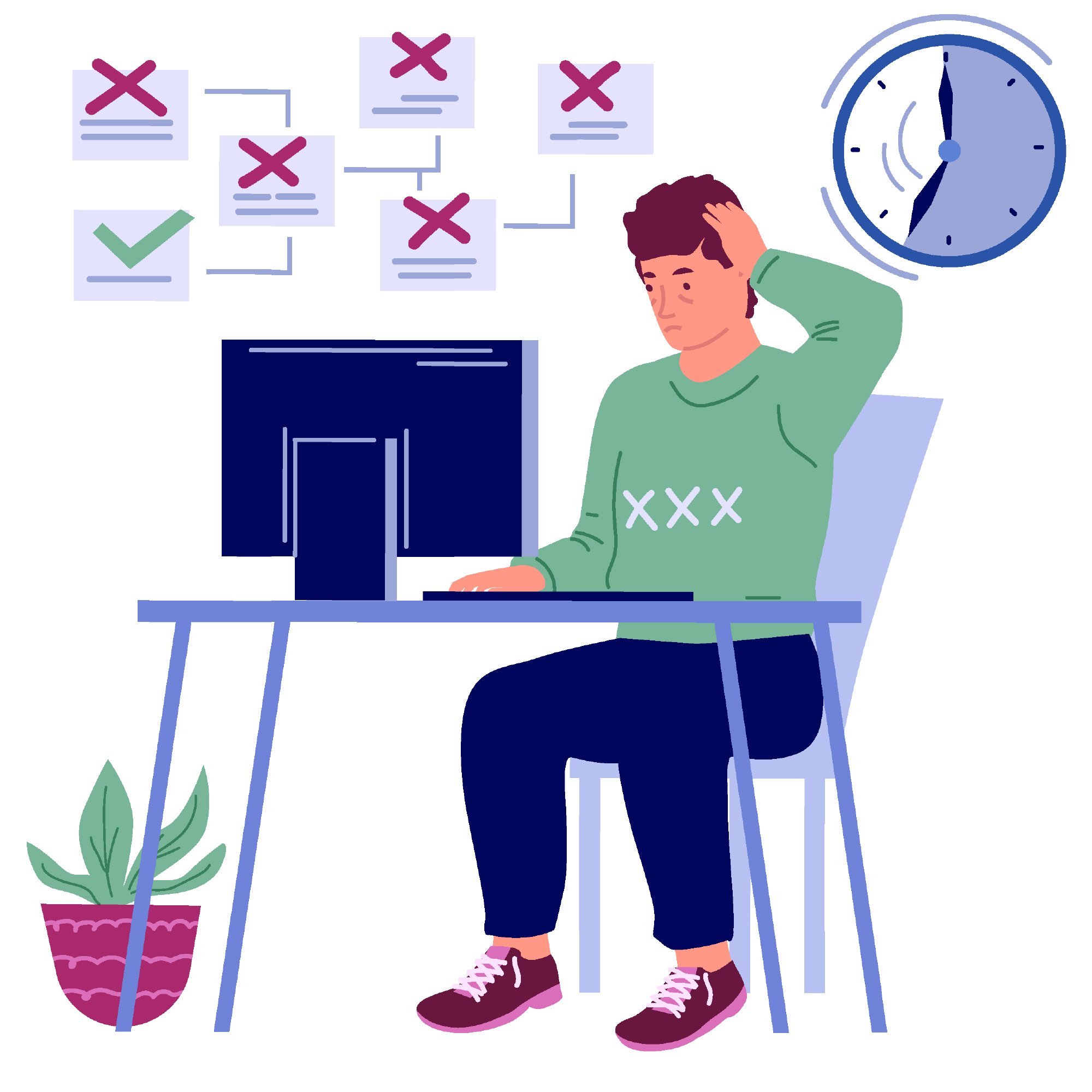High levels of work-related stress can lead to workplace burnout. This usually occurs when you’re emotionally, physically or mentally exhausted.
“The main reason someone starts feeling burnout is because of what happens in the organisation where they work, and the mental health hazards that are there. So, it’s important to create a mentally safe workplace environment. This means people feel safe enough to speak up” says Dr Georgi Toma (MA, PhD), an expert on employee wellness.
The six main causes of burnout are:

- Consistently high workloads and/or pace of work with little rest
- Unclear job requirements and constantly changing priorities
- Employees feeling like they’re not part of the team
- Low levels of trust, lack of support, and unresolved conflict
- Changes at work that haven’t been
well managed - Bullying, harassment, or threats of violence
As an employer, you must make sure you provide healthy work conditions. A health and wellbeing policy is recommended. Burnout can lead to employees resigning, reduction in productivity or legal issues under the Health & Safety Act. People are not willing to put their mental wellbeing on the line for their employers anymore.
Symptoms of burnout include:
- Exhaustion and fatigue, even after sleep
- Foggy brain
- Little interest in your work and doubt about what you contribute
- Lack of personal achievement – you feel you’re not doing your job well and then it becomes real as you’re unable to do your job properly
- Irritability, feeling negative or cynical
Experts recommend routine and taking time-out for the brain to take a break. This is because many small business owners spend all day thinking about work.
Some ways to prevent burnout and get the best out of your team are:
- Setting clear, achievable tasks and goals
- Make sure your employees have the skills to do their jobs properly
- Help to manage workload and the pace at which work needs to be delivered
- Discuss work challenges and brainstorm ideas with your team
- Involve employees in issues that might affect their health and safety
- Identify signs of stress among workers
- Have agreed policies and procedures to deal with behaviour
- Involve employees in changes to your business
- It’s important to provide support to your employees. Regularly check in with your team and if needed prepare an action plan or provide access to counselling.
“When your people flourish, your business thrives.” Dr Georgi Toma.
![]()

